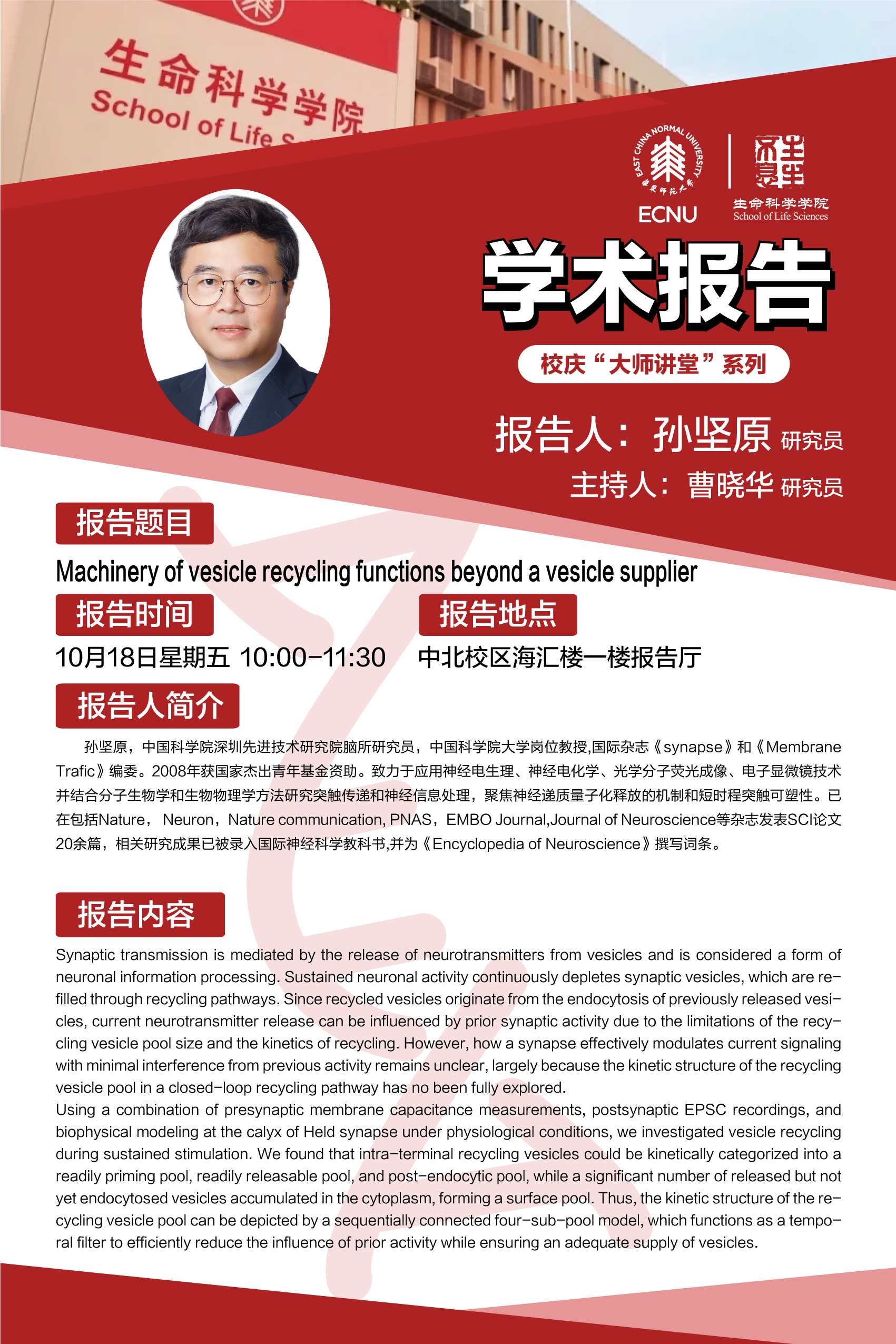报告题目:Machinery of vesicle recycling functions beyond a vesicle supplier
报 告 人:孙坚原,研究员
主 持 人:曹晓华,研究员
报告时间:2024年10月18日10:00-11:30
报告地点:中北校区海汇楼一楼报告厅
报告人简介:
孙坚原,中国科学院深圳先进技术研究院脑所研究员,中国科学院大学岗位教授,国际杂志《synapse》和《Membrane Trafic》编委。2008年获国家杰出青年科学基金资助。致力于应用神经电生理、神经电化学、光学分子荧光成像、电子显微镜技术并结合分子生物学和生物物理学方法研究突触传递和神经信息处理,聚焦神经递质量子化释放的机制和短时程突触可塑性。已在包括Nature, Neuron,Nature communication, PNAS,EMBO Journal,Journal of Neuroscience等杂志发表SCI论文20余篇,相关研究成果已被录入国际神经科学教科书,并为《Encyclopedia of Neuroscience》撰写词条。
报告内容简介:
Synaptic transmission is mediated by the release of neurotransmitters from vesicles and is considered a form of neuronal information processing. Sustained neuronal activity continuously depletes synaptic vesicles, which are refilled through recycling pathways. Since recycled vesicles originate from the endocytosis of previously released vesicles, current neurotransmitter release can be influenced by prior synaptic activity due to the limitations of the recycling vesicle pool size and the kinetics of recycling. However, how a synapse effectively modulates current signaling with minimal interference from previous activity remains unclear, largely because the kinetic structure of the recycling vesicle pool in a closed-loop recycling pathway has no been fully explored.
Using a combination of presynaptic membrane capacitance measurements, postsynaptic EPSC recordings, and biophysical modeling at the calyx of Held synapse under physiological conditions, we investigated vesicle recycling during sustained stimulation. We found that intra-terminal recycling vesicles could be kinetically categorized into a readily priming pool, readily releasable pool, and post-endocytic pool, while a significant number of released but not yet endocytosed vesicles accumulated in the cytoplasm, forming a surface pool. Thus, the kinetic structure of the recycling vesicle pool can be depicted by a sequentially connected four-sub-pool model, which functions as a temporal filter to efficiently reduce the influence of prior activity while ensuring an adequate supply of vesicles.
